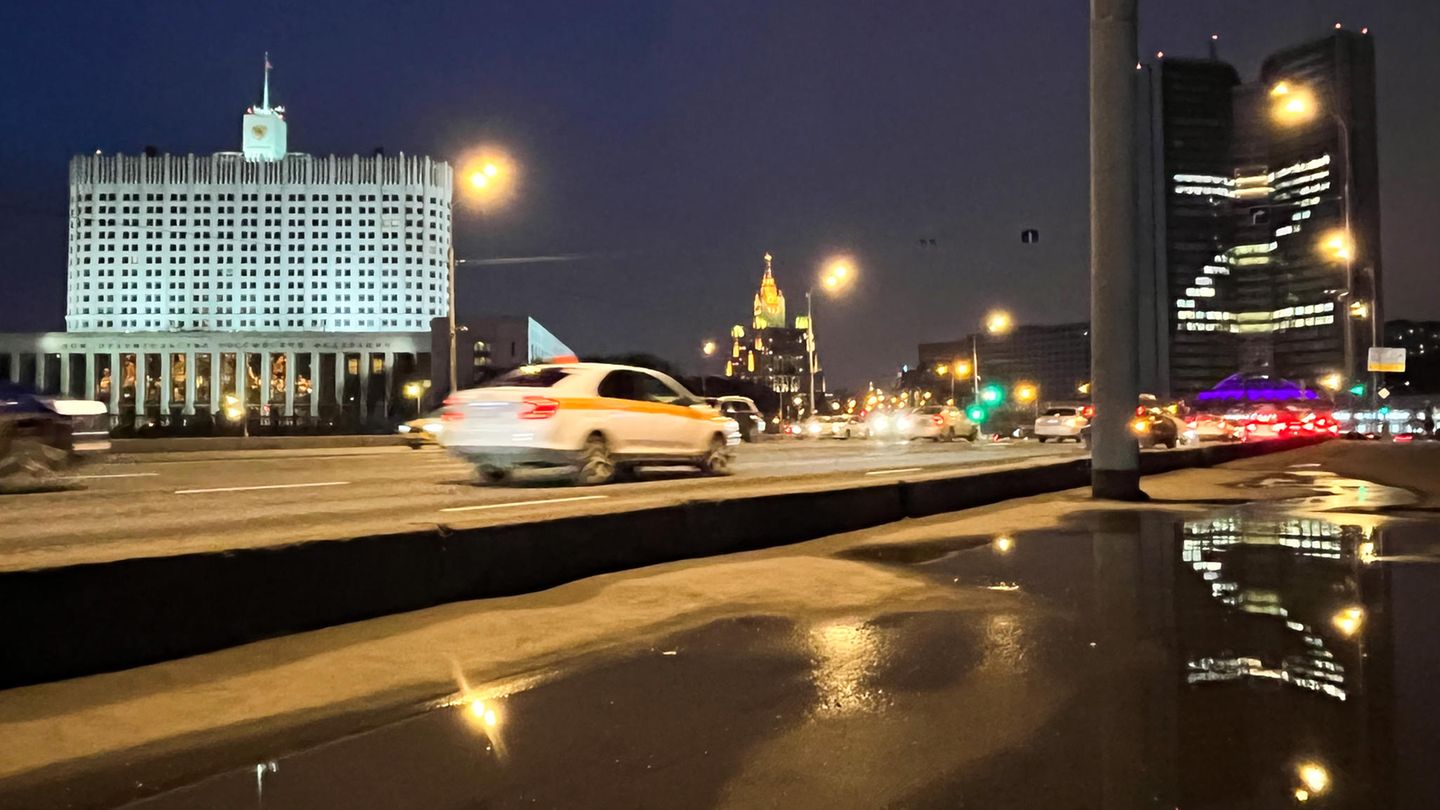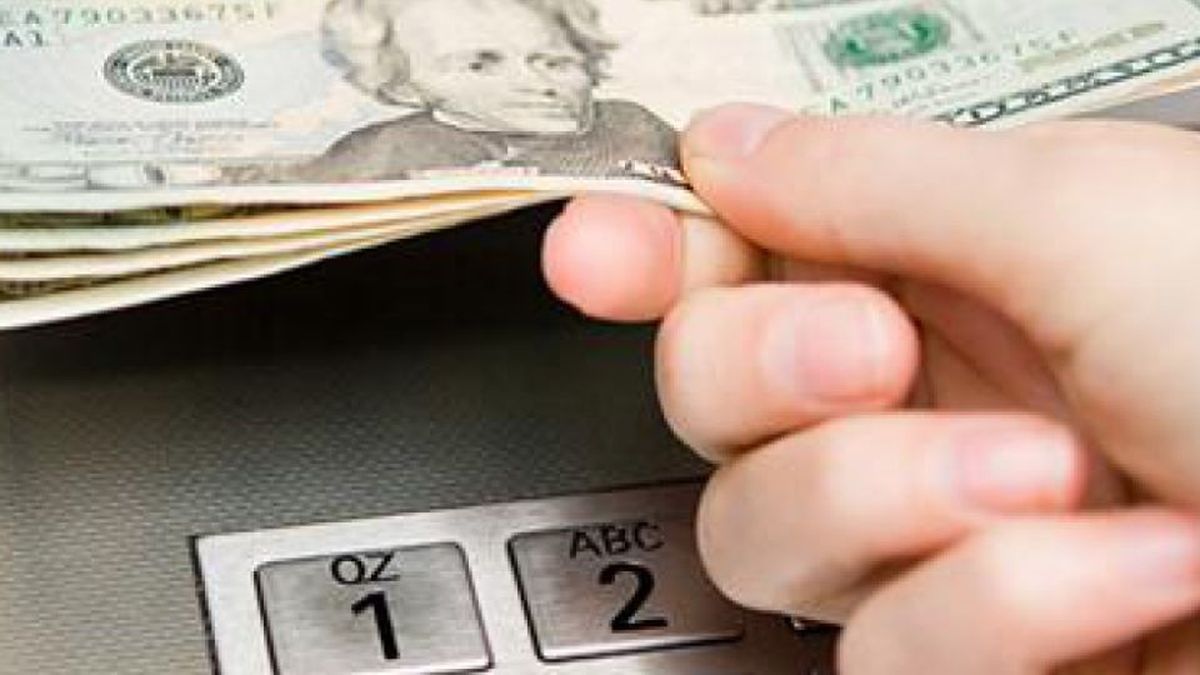At the end of February, Kremlin chief Vladimir Putin ordered an attack on neighboring Ukraine. In Russia, many are horrified, thousands are arrested during anti-war protests. But there was no widespread public outrage. How so?
A day after the discovery of hundreds of murdered civilians in the Ukrainian town of Bucha, two small notices are hanging on the fence of the waterfront promenade in central Moscow. “This is war,” it says. And: “Don’t be silent!” One piece of paper is blue, the other yellow – the colors of the Ukrainian flag. It’s a silent protest. The war and the crimes in the neighboring country also shock many in Russia. Since the beginning of the war of aggression against Ukraine ordered by Kremlin chief Vladimir Putin seven weeks ago, people have repeatedly expressed shame about their political leadership.
Ukrainian President Volodymyr Zelenskyy has repeatedly appealed to the Russians not to look on with indifference when their brother people are being murdered. In Russia, on the other hand, the imprisoned opponent of the Kremlin, Alexei Navalny, is calling on his compatriots to protest from the prison camp. According to civil rights activists, more than 15,000 demonstrators were arrested on Russia’s streets in the first weeks of the war. Meanwhile, people around the world are celebrating journalist Marina Ovsiannikova, who had been loyal to the system until then, for jumping into the picture with an anti-war poster on state television’s evening news in mid-March.
The propaganda symbol Z is ubiquitous in Russia
But over time, the protests are getting smaller. And the hope of some opponents of the Kremlin that Ovzyannikova’s courageous television protest could trigger a wave has not been fulfilled. Instead, the propaganda symbol Z can be seen in many places – not only as a light installation on public buildings, but also pasted or painted on private cars and apartment doors. It also stands for “Za Pobedu” – “For Victory”.
On the street and in supermarkets, people are complaining about how bad everything is at the moment – but what is often meant is not the actions of the Russian army, but the consequences of western sanctions, the increased food prices and the canceled flights.
In a survey by the independent polling institute Levada, more than a month after the start of the war, 81 percent of those questioned said they supported Russia’s “actions” in Ukraine. At the same time, the three most frequently mentioned feelings that people associate with the fighting are pride in Russia, as well as “horror” and “shock”.
Many Russians are not very euphoric about the Ukraine war
Many Russians are anything but euphoric about the fighting, says the scientific director of the Levada Center, Lev Gudkov, in an interview with opposition politician Leonid Volkov. “Are you actively supporting her? No. With emotional involvement? No.”
The renowned sociologist sees the main reason for the support of the Russian population in the aggressive dominance of state propaganda, which praises the war like a mantra as the “liberation” of Ukraine from “fascists” and Ukrainian accusations against Russian soldiers per se and without evidence than by the dismisses “stagings” and “fakes” controlled by the USA. While people in metropolises like Moscow have access to critical websites, residents in provincial regions with poor or no internet are often left alone with state television, says Gudkow.
Approval for the “special military operation,” as the war against Ukraine is officially called in Russia, should not be confused with approval for Putin, he emphasizes. And indeed, polls show that while support for the Kremlin chief has waned in the meantime, pride in his own army has increased. A few years ago, the majority of participants in a Levada survey replied that, in their eyes, Russia was respected by the rest of the world primarily for its army and its nuclear weapons.
At the same time, state repression of those who think differently has increased noticeably since the outbreak of war. A man has been arrested in Moscow for holding Leo Tolstoy’s book War and Peace next to a monument with the inscription “Kyiv”. A new media law provides for up to 15 years in prison for alleged “false information” about Russia’s armed forces. Well-known independent broadcasters and news portals are being blocked or – like the newspaper “Novaya Gazeta” by Nobel Peace Prize winner Dmitri Muratov – are shutting down. Critical journalists, writers and artists are leaving the country.
Russians may remain silent out of sheer opportunism
The sociologist Gudkow believes that many citizens remain silent out of “pure opportunism” in order not to openly get into a conflict with the state power. So-called kitchen talks – firmly anchored in Russian society since Soviet times – are experiencing a new heyday. A 74-year-old Muscovite said in a personal conversation that her heart bled at the pictures from Ukraine that Russia had turned into a fascist regime. “But when my neighbor comes by later, I won’t say what I just said to you.”
Some Russians, condemning their army’s war of aggression, choose a quiet form of resistance. While those around her are celebrating Putin for his crimes in Ukraine, she has now decided to learn Ukrainian, says a young woman from the Siberian metropolis of Novosibirsk. “I’m really sick of our powerful and their lies,” she explains her small gesture of solidarity. “I am so angry that I wish them all death.”
Source: Stern
David William is a talented author who has made a name for himself in the world of writing. He is a professional author who writes on a wide range of topics, from general interest to opinion news. David is currently working as a writer at 24 hours worlds where he brings his unique perspective and in-depth research to his articles, making them both informative and engaging.




